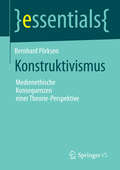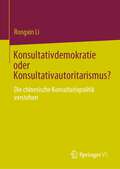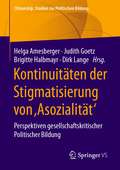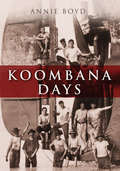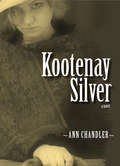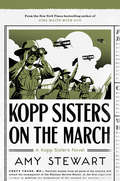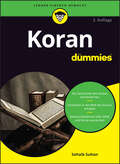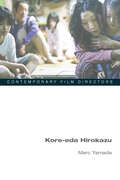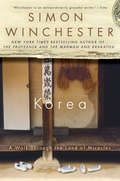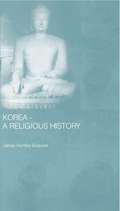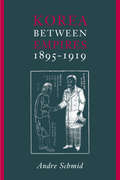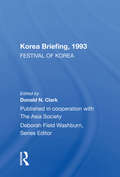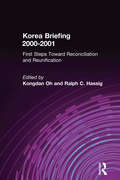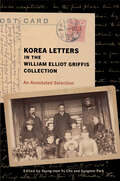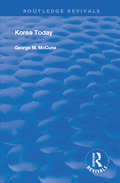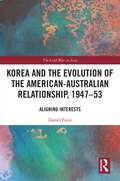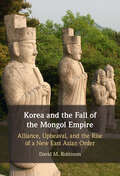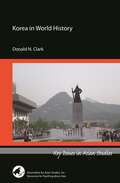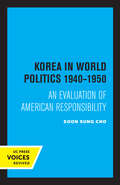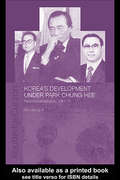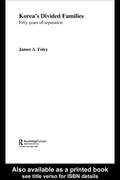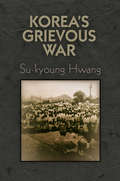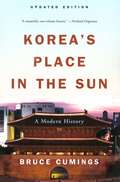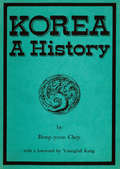- Table View
- List View
Konstruktivismus: Medienethische Konsequenzen einer Theorie-Perspektive (essentials)
by Bernhard PörksenDieser Essay stellt sich einem doppelten Anspruch: Zum einen soll - kurz und knapp - in die Erkenntnistheorie des Konstruktivismus eingeführt werden, die in den verschiedensten Disziplinen (Medien- und Kommunikationswissenschaft, Soziologie etc. ) für Aufsehen gesorgt hat. Zum anderen gilt es zu zeigen, in welcher Weise die Kernaussagen und Prämissen des Konstruktivismus (Abschied von der Idee absoluter Wahrheitserkenntnis, Orientierung am ,,Beobachter" bzw. dem Erkennenden, Akzeptanz der Pluralität von Wirklichkeitskonstruktionen etc. ) für die medienethischen Debatten folgenreich sind. Deutlich wird, dass die konstruktivistischen Einsichten zu einer grundsätzlichen Skepsis inspirieren und eine radikale Verantwortungsethik begründbar machen. Jeder ist, so das hier entfaltete Argument, für seine Wirklichkeitskonstruktion verantwortlich.
Konsultativdemokratie oder Konsultativautoritarismus?: Die chinesische Konsultativpolitik verstehen
by Rongxin LiIn diesem Buch wird die chinesische Politik theoretisiert, insbesondere Chinas "deliberative Demokratie (xieshang minzhu 协商民主)". In einem vergleichenden Rahmen zwischen China und dem Westen hinterfragt der Autor den Anspruch der chinesischen Regierung, die Bürger zu repräsentieren, und zeigt dem Leser, wie all diese Konzepte innerhalb der chinesischen Ideologie, des demokratischen Diskurses und der Regierungsführung zusammenwirken und in welchem Verhältnis sie zum chinesischen Autoritarismus stehen. Vor allem stellt dieses Buch eine nachhaltige Hybridisierung der politischen Theorie dar, die weder eine einfache demokratisch-autoritäre Dichotomie noch eine Neuinterpretation der offiziellen Propaganda ist. Diese Studie wird für Wissenschaftler der chinesischen Politik und Staatskunst von Interesse sein, da sie Licht auf einen neu entstehenden Staatsdiskurs wirft - das chinesische xieshang minzhu. Noch wichtiger ist, dass dieses Buch über eine einfache rhetorische und sprachliche Verwendung der "deliberativen Demokratie" im westlichen Sinne hinausgeht und vielmehr den beratenden Charakter der chinesischen Politik hervorhebt, der den chinesischen Autoritarismus begünstigt und festigt.
Kontinuitäten der Stigmatisierung von ,Asozialität': Perspektiven gesellschaftskritischer Politischer Bildung (Citizenship. Studien zur Politischen Bildung)
by Dirk Lange Helga Amesberger Judith Goetz Brigitte HalbmayrMag.a Dr.in Helga Amesberger ist Senior Researcher am Institut für Konfliktforschung, Wien. MMag.a Judith Goetz ist Universitätsassistentin am Zentrum für Lehrer*innenbildung der Universität Wien.Mag.a Dr.in Brigitte Halbmayr ist Senior Researcher am Institut für Konfliktforschung, Wien.Dr. Dirk Lange ist Universitätsprofessor für die Didaktik der Politischen Bildung am Institut für Politikwissenschaft der Leibniz Universität Hannover.
Koombana Days
by Annie BoydThe elegant, ultra-modern SS Koombana arrived in Western Australia in March 1909; after only three years of service in the North West of Australia, the ship and her entire complement disappeared in a late-summer cyclone off the Pilbara coast in 1912. All 156 lives were lost but the wreck was never found. This thoroughly researched and compelling book comes closer than ever before to solving the mystery of Australia’s most significant maritime disaster. Author Annie Boyd spent months camping along the coast, diving and investigating wrecks, researching the Koombana, and meeting with descendants of those lost in the tragedy. This insightful account is the culmination of her work, which includes a 20,000 page online resource with background material and primary sources.
Kootenay Silver
by Ann ChandlerIn 1910, while twelve-year-old Addy McLeod waits in a cabin in the Kootenay wilderness of southeastern British Columbia for her brother, Cask, to send for her, she fends off the unwanted advances of her alcoholic stepfather. When tragedy strikes, she is forced to flee and disguise herself as a boy. Addy’s determined search for Cask becomes a journey of self-discovery as she encounters a tough trapper woman who cares for her when she’s ill, works in a hotel in the silver town of Kaslo on Kootenay Lake, and meets her first love, Ian. But just as Addy’s search for Cask is about to end, the First World War breaks out and her world is torn apart once again. With great resolve she devotes herself to joining the war effort on the home front and eventually learns what forgiveness is all about.
Kopp Sisters on the March (A Kopp Sisters Novel #5)
by Amy StewartIn the fifth installment of Amy Stewart’s clever and original Kopp Sisters series, the sisters learn some military discipline—whether they’re ready or not—as the U.S. prepares to enter World War I. It’s the spring of 1917 and change is in the air. American women have done something remarkable: they’ve banded together to create military-style training camps for women who want to serve. These so-called National Service Schools prove irresistible to the Kopp sisters, who leave their farm in New Jersey to join up.When an accident befalls the matron, Constance reluctantly agrees to oversee the camp—much to the alarm of the Kopps’ tent-mate, the real-life Beulah Binford, who is seeking refuge from her own scandalous past under the cover of a false identity. Will she be denied a second chance? And after notoriety, can a woman’s life ever be her own again? In Kopp Sisters on the March, the women of Camp Chevy Chase face down the skepticism of the War Department, the double standards of a scornful public, and the very real perils of war. Once again, Amy Stewart has brilliantly brought a little-known moment in history to light with her fearless and funny Kopp sisters novels.
Koran für Dummies (Für Dummies)
by Sohaib SultanAlles Wissenswerte über die heilige Schrift des Islam Der Koran ist die heilige Schrift von über 1,8 Milliarden Muslimen auf allen Kontinenten. Er ist die Offenbarung Allahs an den Religionsstifter Mohammed, hohe Literatur und zugleich Leitfaden für das tägliche Leben der Gläubigen. Was sagt der Koran über den Glauben, über Frauen, über die Familie, über Andersgläubige, über Verbrechen und ihre Bestrafung? Sohaib Sultan berichtet über die Entstehung der heiligen Schrift und erläutert die Sprache des Koran. Er räumt Missverständnisse über den Koran aus dem Weg und eröffnet damit Möglichkeiten zu einem besseren Verständnis des Islam. Sie erfahren Wie der Koran entstanden und wie er aufgebaut ist Wie vielfältig sich der Koran interpretieren lässt Wie ein Leben nach dem Koran heute aussieht Was der Koran zu gesellschaftlichen Fragen sagt
Kore-eda Hirokazu (Contemporary Film Directors)
by Marc YamadaFilms like Shoplifters and After the Storm have made Kore-eda Hirokazu one of the most acclaimed auteurs working today. Critics often see Kore-eda as a director steeped in the Japanese tradition defined by Yasujirō Ozu. Marc Yamada, however, views Kore-eda’s work in relation to the same socioeconomic concerns explored by other contemporary international filmmakers. Yamada reveals that a type of excess, not the minimalism associated with traditional aesthetics, defines Kore-eda’s trademark humanism. This excess manifests in small moments when a desire for human connection exceeds the logic of the institutions and policies formed by the neoliberal values that have shaped modern-day Japan. As Yamada shows, Kore-eda captures the shared spaces formed by bodies that move, perform, and assemble in ways that express the humanistic impulse at the core of the filmmaker’s expanding worldwide appeal.
Korea
by Simon WinchesterIn the late 1980s, New York Times bestselling author Simon Winchester set out on foot to discover the Republic of Korea -- from its southern tip to the North Korean border -- in order to set the record straight about this enigmatic and elusive land.Fascinating for its vivid presentation of historical and geographic detail, Korea is that rare book that actually defines a nation and its people. Winchester's gift for capturing engaging characters in true, compelling stories provides us with a treasury of enchanting and informed insight on the culture, language, history, and politics of this little-known corner of Asia.With a new introduction by the author, Korea is a beautiful journey through a mysterious country and a memorable addition to the many adventures of Simon Winchester.
Korea - A Religious History
by James H. GraysonThis is an historical survey of all the religious traditions of Korea in relation to the socio-cultural trends of seven different periods of Korean history. The book includes a discussion of the history of the study of religion in Korea, a chronological description of Korean folk religion including shamanism, Buddhism, Confucianism, Roman Catholicism and Protestantism, Islam, and Korean New Religions, and some final observations about the unique characteristics of religious beliefs and practices in Korea.
Korea Between Empires, 1895-1919
by Andre SchmidKorea Between Empires chronicles the development of a Korean national consciousness. It focuses on two critical periods in Korean history and asks how key concepts and symbols were created and integrated into political programs to create an original Korean understanding of national identity, the nation-state, and nationalism. Looking at the often-ignored questions of representation, narrative, and rhetoric in the construction of public sentiment, Andre Schmid traces the genealogies of cultural assumptions and linguistic turns evident in Korea's major newspapers during the social and political upheavals of the late nineteenth and early twentieth centuries.Newspapers were the primary location for the re-imagining of the nation, enabling readers to move away from the conceptual framework inherited from a Confucian and dynastic past toward a nationalist vision that was deeply rooted in global ideologies of capitalist modernity. As producers and disseminators of knowledge about the nation, newspapers mediated perceptions of Korea's precarious place amid Chinese and Japanese colonial ambitions and were vitally important to the rise of a nationalist movement in Korea.
Korea Briefing, 1993: Festival Of Korea Edition
by Donald N. ClarkThis edition of Korea Briefing, the fourth in the series, is issued in conjunction with The Asia Society's Festival of Korea, a yearlong, nationwide celebration of Korean history, culture, and contemporary life.
Korea Briefing: 2000-2001: First Steps Toward Reconciliation and Reunification (Asia Society Briefings Ser.)
by Kongdan Oh Ralph C. HassigThis new edition of Korea Briefing provides a timely analysis of the evolving relationship between South and North Korea. In June 2000, after years of ignoring the South Korean government, the North Korean leader Kim Jong II finally agreed to a summit meeting with South Korea's President Kim Dae Jung. As a sign of reconciliation, the summit meeting has prompted Korea and its neighbors to rethink the assumptions of the Cold War era. With contributions by a multi-national panel of Koreanexperts, the book discusses a wide range of topics, including South Korean politics and economy; Korea's relations with its neighbors and with the United States; recent changes in North Korea; the fate of North Korean defectors; and lessons in German reunification for the two Koreas. The discussions are supplemented by a glossary, a chronology of events occurring from June 1999 to June 2001, and a bibliography.
Korea Letters in the William Elliot Griffis Collection: An Annotated Selection
by William Eilliot GriffisWilliam Elliot Griffis (1843 – 1928) graduated from Rutgers College in 1869 and taught four years in Fukui and Tokyo. After his return to the United States, he devoted himself to his research and writing on East Asia throughout his life. He authored 20 books about Japan and five books about Korea including, Corea: The Hermit Nation (1882), Corea, Without and Within: Chapters on Corean History, Manners and Religion (1885), The Unmannerly Tiger, and Other Korean Tales (1911), A Modern Pioneer in Korea: The Life Story of Henry G. Appenzeller (1912), and Korean Fairy Tales (1922). In particular, his bestseller, Corea: The Hermit Nation (1882) was reprinted numerous times through nine editions over thirty years. He was not only known as "the foremost interpreter of Japan to the West before World War I but also the American expert on Korea. After his death, his collection of books, documents, photographs and ephemera was donated to Rutgers. The Korean materials in the Griffis Collection at Rutgers University consist of journals, correspondence, articles, maps, prints, photos, postcards, manuscripts, scrapbooks, and ephemera. These papers reflect Griffis's interests and activities in relation to Korea as a historian, scholar, and theologian. They provide a rare window into the turbulent period of late nineteenth- and twentieth-century Korea, witnessed and evaluated by Griffis and early American missionaries in East Asia. The Korea Letters in the William Elliot Griffis Collection are divided into two parts: letters from missionaries and letters from Japanese and Korean political figures. Newly available and accessible through this collection, these letters develop a multifaceted history of early American missionaries in Korea, the Korean independence movement, and Griffis's views on Korean culture.
Korea Today (Routledge Revivals #3)
by George M. McCunePublished in 1950: Here is the first comprehensive study of Korea since its liberation and division. Written by an outstanding American authority with long personal knowledge of the country, it provides an analysis of the American and Russian military occupations, the efforts of the United Nations to deal with the problem of Unification of the country, the political and economic policies followed in the northern and southern regimes, and an appraisal of the U.S. program of economic and military aid to South Korea.
Korea and the Evolution of the American-Australian Relationship, 1947–53: Aligning Interests (The Cold War in Asia)
by Daniel FazioFazio examines the significance of the US-Australian Korean engagement, 1947–53, in the evolution of the relationship between the two nations in the formative years of the Cold War. In the aftermath of World War Two, divergent American and Australian strategic and security interests converged and then aligned on the Korean peninsula. Fazio argues that the interactions between key US and Australian officials throughout their Korean engagement were crucial to shaping the nature of the evolving relationship and the making of the alliance between the two nations. The diplomacy of Percy Spender, John Foster Dulles, and James Plimsoll was particularly crucial. He demonstrates that the American evaluation of the geo-strategic significance of Korea was a significant factor in the making of the ANZUS alliance and events in Korea remained central to the evolving US-Australian relationship. Their Korean engagement showed the US and Australia had similar and overlapping, rather than identical interests, and that their relationship was much more nuanced and problematic than commonly perceived. Fazio challenges the Australian mythology on the origins of the ANZUS Treaty and presents a cautionary insight into the limits of Australia’s capacity to influence US policy to benefit its interests. An insightful read for diplomatic historians, providing greater depth to understanding the broader historical context of the trajectory of the US-Australian relationship and alliance since the beginning of the Cold War.
Korea and the Fall of the Mongol Empire: Alliance, Upheaval, and the Rise of a New East Asian Order
by David M. RobinsonKorea and the Fall of the Mongol Empire explores the experiences of the enigmatic and controversial King Gongmin of Goryeo, Wang Gi, as he navigated the upheavals of the mid-fourteenth century, including the collapse of the Mongol Empire and the rise of its successors in West, Central, and East Asia. Drawing on a wealth of Korean and Chinese sources and integrating East Asian and Western scholarship on the topic, David Robinson considers the single greatest geopolitical transformation of the fourteenth century through the experiences of this one East Asian ruler. He focuses on the motives of Wang Gi, rather than the major contemporary powers, to understand the rise and fall of empire, offering a fresh perspective on this period of history. The result is a more nuanced and accessible appreciation of Korean, Mongolian, and Chinese history, which sharpens our understanding of alliances across Eurasia.
Korea in World History (Key Issues in Asian Studies)
by Donald ClarkDonald Clark does a masterful job of situating the entire sweep of Korean history in its global context thus belying the shop worn stereotype of Korea as a hermit nation. Clark uses his mastery of both medieval and modern history to vividly describe the often ignored contributions of this fascinating society to East Asian civilization writ large. His concise chapter arrangement and lively narrative writing pulls the reader into the Korean story while showing just how relevant that story is, particularly in modern times, for an American readership. <p><p> Clark has condensed without sacrificing important detail, and he emphasizes important themes from Korea’s past that have combined with the turbulent 20th century to produce the complex strategic and economic situation at the beginning of the 21st century on the peninsula. Particularly trenchant are his chapters on the division of Korea as well as a thoughtful treatment of North Korea which is too often ignored in other texts. This book will make an excellent companion volume in East Asia survey courses, and other courses on East Asia. After all, as Prof. Clark points out again and again, understanding Korea remains vital to a true appreciation of East Asia’s past and present.
Korea in World Politics, 1940-1950: An Evaluation of American Responsibility
by Soon Sung ChoThis title is part of UC Press's Voices Revived program, which commemorates University of California Press’s mission to seek out and cultivate the brightest minds and give them voice, reach, and impact. Drawing on a backlist dating to 1893, Voices Revived makes high-quality, peer-reviewed scholarship accessible once again using print-on-demand technology. This title was originally published in 1967.
Korea's Development Under Park Chung Hee: Rapid Industrialization, 1961-79 (Routledge/Asian Studies Association of Australia (ASAA) East Asian Series)
by Hyung-A KimBased on personal interviews with the principal policy-makers of the 1970s, Korea's Development under Park Chung-Hee examines how the president sought to develop South Korea into an independent, autonomous sovereign state both economically and militarily. Kim provides a new narrative in the complex task of exploring the paradoxical nature and effects of Korea's rapid development which maintains that any judgement of Park must consider his achievements in the socio-economic, cultural and political context in which they took place. Aspects of Park's government analyzed include:*his abhorrence of Korea's reliance on the US presence*the Korean model of state-guided industrialization*Park's rapid development strategy *the role of the ruling elites*Park's clandestine nuclear development program*the heavy chemical industrialisation of the 1970sThe prevailing popularity of Park in the eyes of the Korean public is significant and relevant to their acceptance of how their national development was achieved. This book tells that story while simultaneously recognizing the flaws in the process. With a great deal of material never before published, scholars of Korean politics and history at all levels will find this book a stimulating account of South Korea in the 1960s and 1970s.
Korea's Divided Families: Fifty Years of Separation
by James FoleyThe divided families problem is a serious social issue in North and South Korea, involving hundreds of thousands of first generation divided family members, most of whom have not seen their relatives since the Korean War. It is the most pressing humanitarian issue between the two Koreas, and is connected to the greater issue of human rights in North Korea today. However, little serious academic work exists on the subject, in either English or Korean. This new study, based on research conducted in Korea, including interviews in 2001 with Korean families who benefited from the most recent exchanges, addresses the many issues surrounding the divided family problem, and highlights its importance in the path towards Korean rapprochement.
Korea's Grievous War
by Su-Kyoung HwangIn 1948, two years before Cold War tensions resulted in the invasion of South Korea by North Korea that started the Korean War, the first major political confrontation between leftists and rightists occurred on the South Korean island of Cheju. Communist activists disrupted United Nations-sanctioned elections and military personnel were deployed to Cheju. What began as a counterinsurgency operation targeting 350 local rebels resulted in the deaths of around 30,000 uninvolved civilians, 10 percent of the island's population. <P><P>Su-kyoung Hwang's Korea's Grievous War recounts the civilian experience of anticommunist violence, beginning with the Cheju Uprising in 1948 and continuing through the Korean War until 1953. Wartime declarations of emergency by both the U.S. and Korean governments were issued to contain communism, but a major consequence of their actions was to contribute to the loss of over two million civilian lives. Hwang inventories the persecutions of left-leaning intellectuals under the South Korean regime of Syngman Rhee and the executions of political prisoners and innocent civilians to "prevent" their collaboration with North Korea. She highlights the role of the United States in observing, documenting, and yet failing to intervene in the massacres and of the U.S. Air Force's three-year firebombing of North and South Korea. <P><P>Hwang draws on archival research and personally conducted interviews to recount vividly the acts of anticommunist violence at the human level and illuminate the sufferings of civilian victims. Korea's Grievous War presents the historical background, political motivations, legal bases, and social consequences of anticommunist violence, tracing the enduring legacy of this destruction in the testimonies of survivors and bereaved families that only now can give voice to the lived experience of the grievous war and its aftermath.
Korea's Place in the Sun: A Modern History (Updated)
by Bruce Cumings"Passionate, cantankerous, and fascinating. Rather like Korea itself."--Nicholas D. Kristof, New York Times Book Review Korea has endured a "fractured, shattered twentieth century," and this updated edition brings Bruce Cumings's leading history of the modern era into the present. The small country, overshadowed in the imperial era, crammed against great powers during the Cold War, and divided and decimated by the Korean War, has recently seen the first real hints of reunification. But positive movements forward are tempered by frustrating steps backward. In the late 1990s South Korea survived its most severe economic crisis since the Korean War, forcing a successful restructuring of its political economy. Suffering through floods, droughts, and a famine that cost the lives of millions of people, North Korea has been labeled part of an "axis of evil" by the George W. Bush administration and has renewed its nuclear threats. On both sides Korea seems poised to continue its fractured existence on into the new century, with potential ramifications for the rest of the world.
Korea: A History
by Younghill Kang Bong-Youn ChoyThis detailed, scholarly history of Korea is a comprehensive political and socioeconomic history from 57 B.C. to modern times, including North and South Korea.Specializing in Korean industrial structure, economic planning, and administration, the author presents a concise yet readable historical approach to a greater understanding of Korea's position in East Asia. The author, a political scholar and experienced linguist, bases his text on primary Korean and Japanese sources, thus providing much information previously unavailable to English-speaking people.Ancient Korea is covered in the first chapter, "The Three Kingdoms," and also in the six subsequent chapters dealing with feudalism, land reform, and early Korean social structure. The thirteen succeeding chapters bring the history to modern times. They include a valuable account of Japanese colonial policy and the struggle for independence of the Korean people; the Korean War, its development, offensives, and counteroffensives; factionalism; the politics of Syngman Rhee and his twelve years of one-man rule; the background of the student revolutions; foreign relations; nationalism and neutrality; and the important comparative studies concerning Communism and the governments of North and South Korea. The concluding chapter deals with the future of Korea and its role in rapidly changing East Asia.
Korea: A History
by Younghill Kang Bong-Youn ChoyThis detailed, scholarly history of Korea is a comprehensive political and socioeconomic history from 57 B.C. to modern times, including North and South Korea.Specializing in Korean industrial structure, economic planning, and administration, the author presents a concise yet readable historical approach to a greater understanding of Korea's position in East Asia. The author, a political scholar and experienced linguist, bases his text on primary Korean and Japanese sources, thus providing much information previously unavailable to English-speaking people.Ancient Korea is covered in the first chapter, "The Three Kingdoms," and also in the six subsequent chapters dealing with feudalism, land reform, and early Korean social structure. The thirteen succeeding chapters bring the history to modern times. They include a valuable account of Japanese colonial policy and the struggle for independence of the Korean people; the Korean War, its development, offensives, and counteroffensives; factionalism; the politics of Syngman Rhee and his twelve years of one-man rule; the background of the student revolutions; foreign relations; nationalism and neutrality; and the important comparative studies concerning Communism and the governments of North and South Korea. The concluding chapter deals with the future of Korea and its role in rapidly changing East Asia.
